Taking Care - Knowing What to Expect and Managing Stress
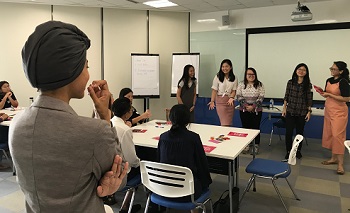
Self-awareness and self-care are crucial to one’s personal health and well-being. Ms A’qilah Saiere, Principal of Preschool for Multiple Intelligences @ East, shares strategies to help new early childhood educators cope with stress and better integrate into the workforce.
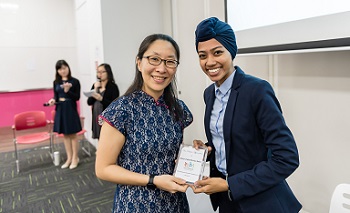
Uncertainty is troubling, especially for novice early childhood educators. If not mentally prepared, it can affect the morale of educators and lead to further stress and anxiety. Having a passion for children, early childhood educators often put the children first, sometimes at the expense of their own well-being. This may cause burnout, where educators may constantly feel exhausted and have difficulty coping with their roles and responsibilities.
Ms A’qilah Saiere, Principal of Preschool for Multiple Intelligences @ East recalled having the same experiences when she first joined the early childhood sector: “Being a novice teacher is extremely overwhelming. (The things that) you think you know and should expect will come five times more intensely than anticipated.”
A’qilah joined the early childhood sector in 2014. Back then, she too struggled to find work-life balance for herself. Physically and mentally overwhelmed, A’qilah found herself overworked and even fell sick frequently.
“Starting out, the knowledge I had was mostly technical - how to manage a class, work out a curriculum, write a lesson plan, etc. No one stopped to speak to us about how to manage the stressors and anxieties I would experience as a teacher. I was overwhelmed by the amount of responsibility I had, the expectations of the parents and the preschool, as well as the different challenges I had with different children. One of the biggest anxiety I had was how to keep the job interesting for both myself and the children,” she shared.
However, A’qilah overcame this challenging period after much self-reflection on how she was treating herself. Together with the support she received from her mentors at Wheelock College, she managed to establish a healthier work-life balance to keep her going.
“After a couple of years, I finally realised that I had to be my best self to be the best teacher I can be for the children I teach. Hence, I started being more mindful with how I spend time in class and also outside of work. I made an effort to pick up sports or spend time to do activities that allowed me to fully relax and detach myself from the workplace. When I started giving myself more time, and consciously started putting away some personal time each week, I started getting healthier - physically, emotionally and mentally. With better health, I became more productive.”
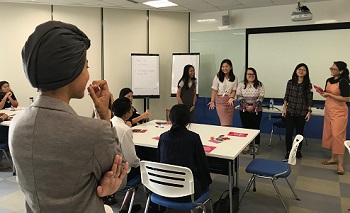
With the newfound knowledge from this difficult experience, A’qilah is now passionate about helping new educators overcome the initial challenges of integrating themselves into the new work environment. She recommends four key strategies:
- Strategy 1: Be a mindful teacher
- Strategy 2: Prioritise self-care
- Strategy 3: Have consistent self-reflection
- Strategy 4: Cultivate positive working relationships at work
Strategy 1: Be a Mindful Teacher
When asked how mindfulness can help educators cope with stress, A’qilah explained, “When a teacher leads a mindful lifestyle, she is more aware of her needs. When a teacher is more aware of her needs, she is able to keep her balance. When a teacher is holistically balanced, she will be able to manage her work better, produce higher quality work and be more motivated. They’re less likely to experience burnout.”
Mindfulness is the process of bringing one’s focus and attention to the present. To be effective in the role that they play, educators need to first understand and address their own needs before they can help others. Another important component of being a mindful educator is to be aware and constantly reminded of the things that make you happy, such as personal hobbies or interests.
For early childhood educators who are new to mindfulness, A’qilah recommends the following tips, “Start with keeping a simple diary or a daily short reflective session. Some people love to meditate, others read. Figure out what suits you best.”
Strategy 2: Prioritising self-care
Besides mindfulness, A’qilah also recommends for new early childhood educators to adopt self-care. She explained that it is crucial for educators to learn to first take care of themselves before they can take care of the preschoolers and their own families.
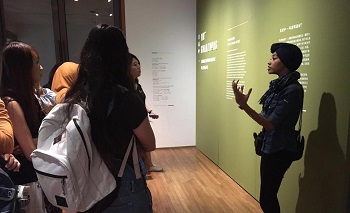
“It is crucial for educators to learn to first take care of themselves. A lot of people think that they are not entitled to take time away from work because it makes them appear lazy or selfish. They do not see how detrimental this could be for their emotional and mental health,”A’qilah shared.
Self-care is not necessarily an exorbitant act. In fact, self-care can involve simple day-to-day actions such as ensuring sufficient rest, taking proper meals and adopting a healthy lifestyle. A’qilah also recommends that educators pamper themselves from time to time and take time-off from work to relax, when necessary.
Strategy 3: Having consistent self-reflection
A’qilah also encourages early childhood educators to adopt self-reflection to help them identify the stressors at work and device strategies to address these stressors. Through consistent self-reflection, educators can better understand their limits and set realistic goals for themselves. Overstretching to meet unrealistic goals can result in unnecessary stress.
Strategy 4: Cultivating positive working relationships at work
It is also equally important to integrate well into the work environment and develop meaningful relationships with colleagues and parents. Cultivating positive relationships at work can help new educators establish a support network to lean on when the going gets tough.
.jpg?sfvrsn=7b34d667_1)
To spark off positive relationships at work, A’qilah suggests for new early childhood educators to be approachable and take the initiative to speak up and contribute ideas at work. Finding a personal mentor to seek guidance from will help greatly as well. The new educators would benefit from the guidance and encouragement offered by an experienced colleague,, especially on days when they feel like giving up.
Sharing from personal experience, A’qilah added, “When I first started out, I was lucky enough to still be in touch with my professors who in turn became my mentors and Advisors. When I face a roadblock at work, I pick up the phone and we’d talk for hours. They never fail to help me gain a fresh perspective - both on work and on life. It’s safe to say that the successes I have achieved to date as a teacher would not have been possible without the guidance of my mentors.”
To early childhood educators beginning on their professional journey, A’qilah had important words of advice to share, “Focus on the positive things in life; less on the negative elements. Do what makes you happy. This can help you cope when you feel overwhelmed or stressed.”
Ms A’qilah Saiere was an ECDA Scholarship recipient and is currently the Principal at Preschool for Multiple Intelligences @ East. She was a Preschool Teacher for two and a half years before becoming a Principal and has been in the sector for four years now. She graduated with a Bachelor of Science in Early Childhood Education at Wheelock College. She has represented Wheelock College in the World Innovation Summit for Education (WISE) Learners’ Voice Program, which brings the perspective of young people to the challenge of rethinking education, and equips them to take on leading roles in their fields and in the world of education.
The above tips and advice were shared by A’qilah at the ECDA Scholarships & Awards Tea Session held on 9 Feb 2018. The ECDA Scholarships & Awards Tea Session aims to provide pre-service educators with practical tips to start and transit well from a student to an early childhood educator and to build a strong and supportive fraternity among ECDA Scholarships and Training Award recipients.
Click here to download the presentation slides on Taking Care: Knowing What to Expect, Managing Stress by A’qilah.
.jpg?sfvrsn=d1e3555a_1)
You may also like
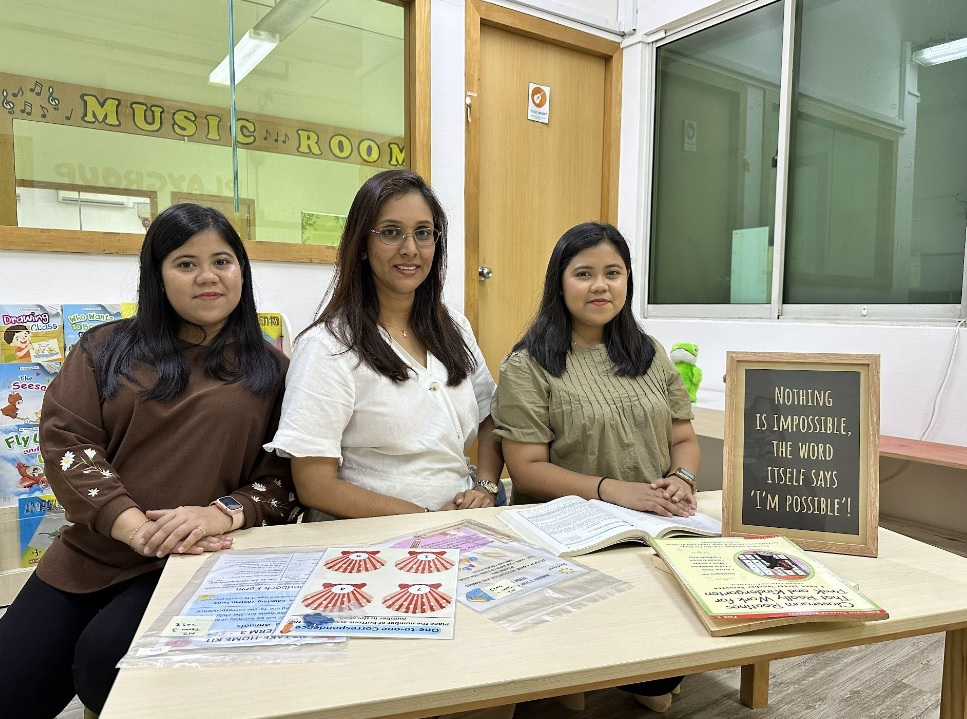
Translating Passion to Profession: Angelene, Nurziana and Sharidah's Voyage in Early Childhood Education
PDP has undoubtedly deepened the skill sets and enriched the expertise of exemplary educators such as (Nur)Ziana and Sharidah

Ms Jegatheswary
Cluster Head at Sunflower Preschool
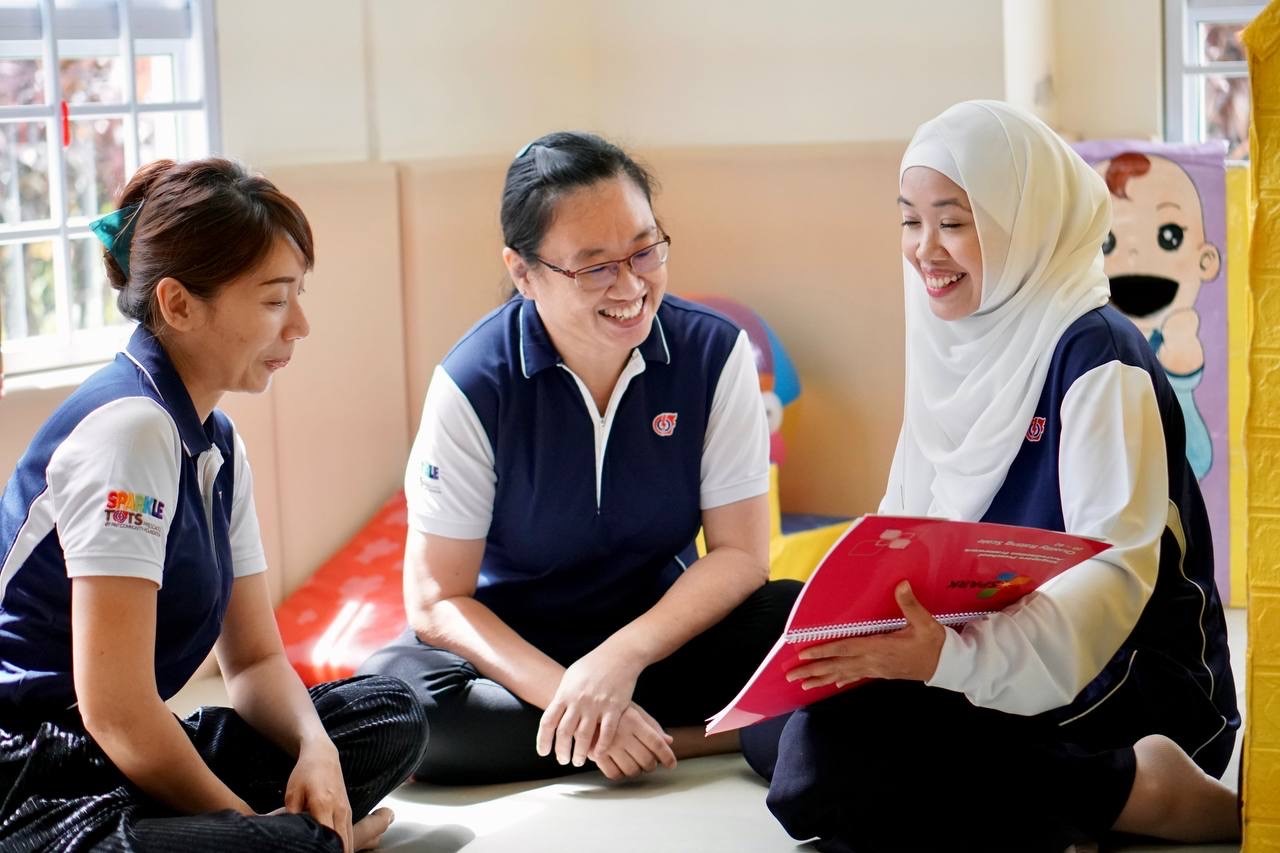
From Cabin to Classroom: Journey of an Outstanding Early Childhood Educator
The PDP modules allowed me to get creative with lesson ideas and keep up with the ever-changing Early Childhood sector.

Ms Farhana Binte Mohamed Hassan
Early Years Educator - PCF Sparkletots @ Pioneer Block 987D (CC)

More Than Just a Place for Food
Young children are highly inquisitive, and learn most effectively with activities that allow exploration and experimentation.

Kinderland @ Yio Chu Kang